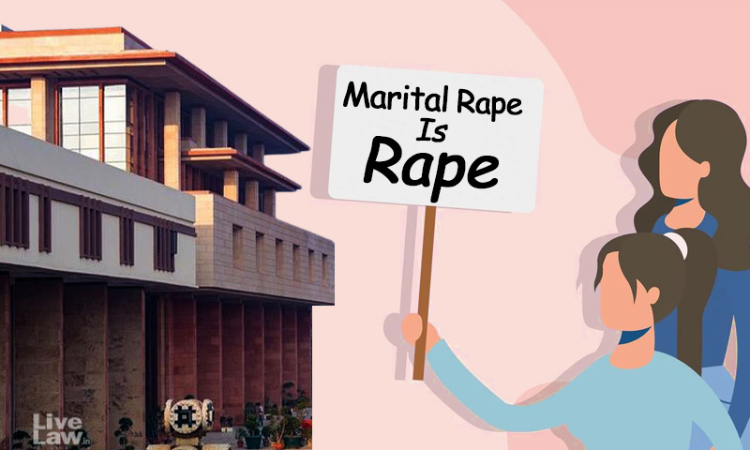Men Welfare Trust Opposes Judicial Intervention To Criminalize Marital Rape
Nupur Thapliyal
27 Jan 2022 8:35 PM IST

Next Story
27 Jan 2022 8:35 PM IST
The Delhi High Court on Thursday continued hearing a batch of petitions challenging the exception to Section 375 of the Indian Penal Code, which exempts forceful sexual intercourse by a man with his own wife from the offence of rape.Advocate J Sai Deepak representing Men Welfare Trust today made rejoinder submissions opposing the criminalisation of marital rape before a bench of Justice...
